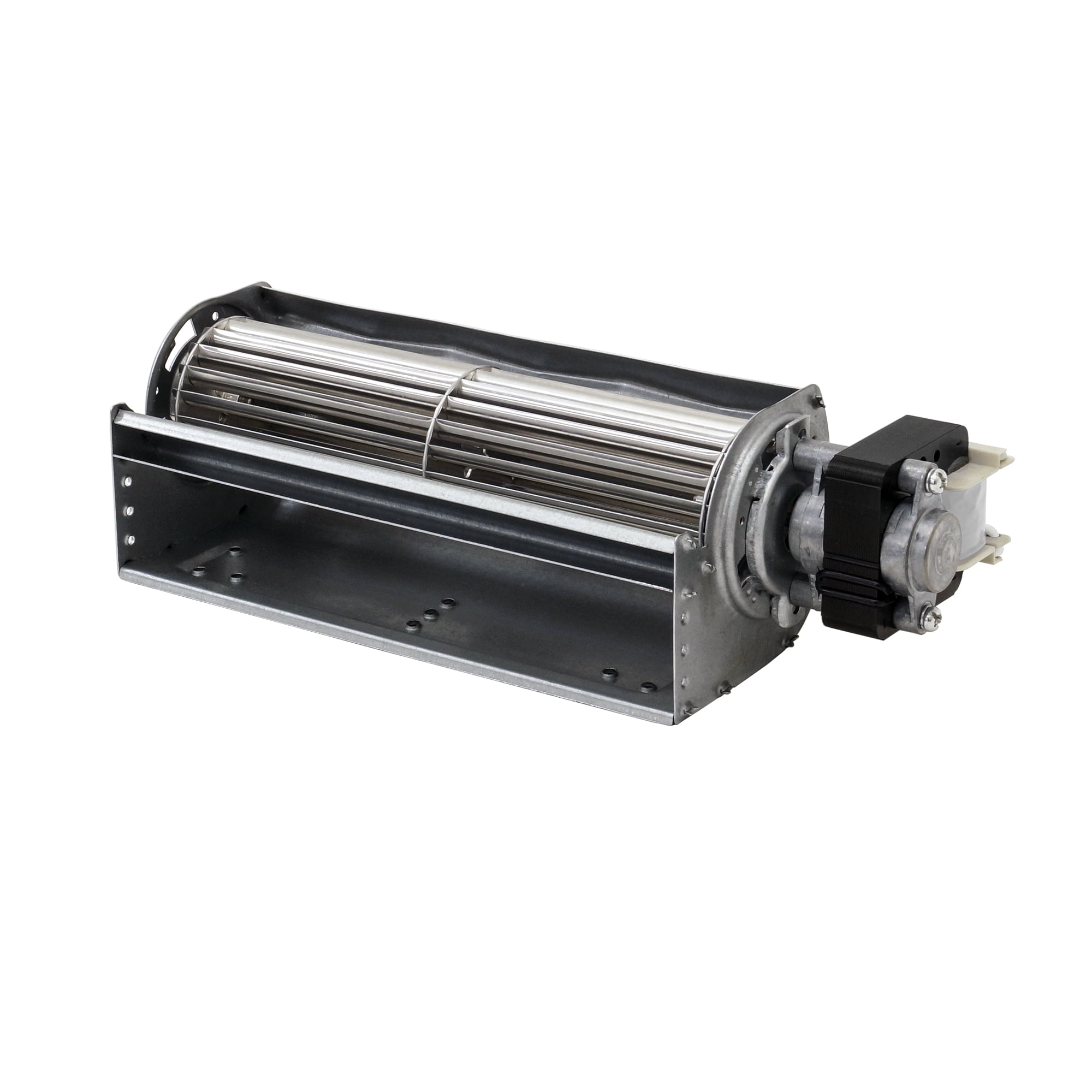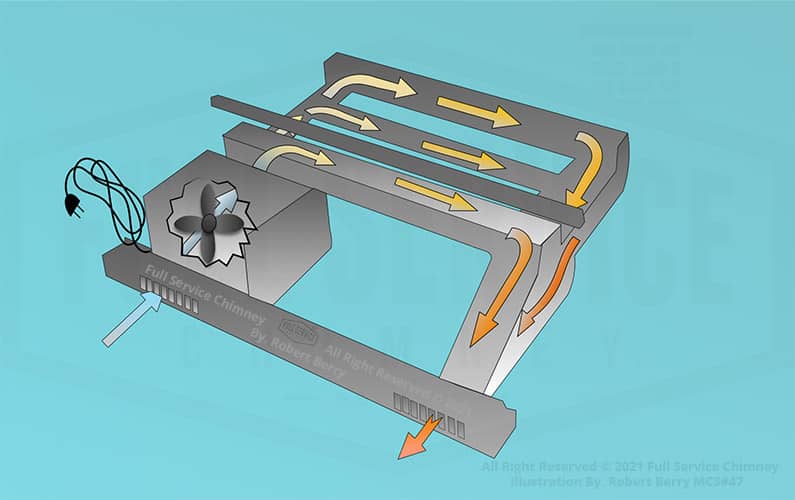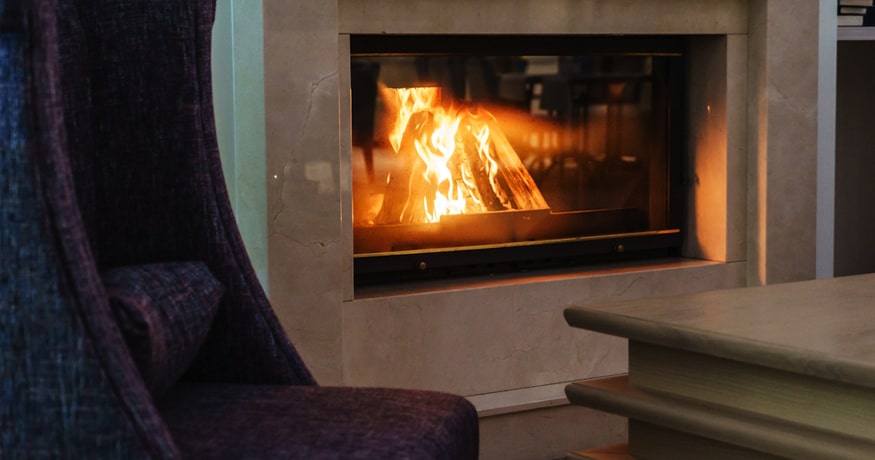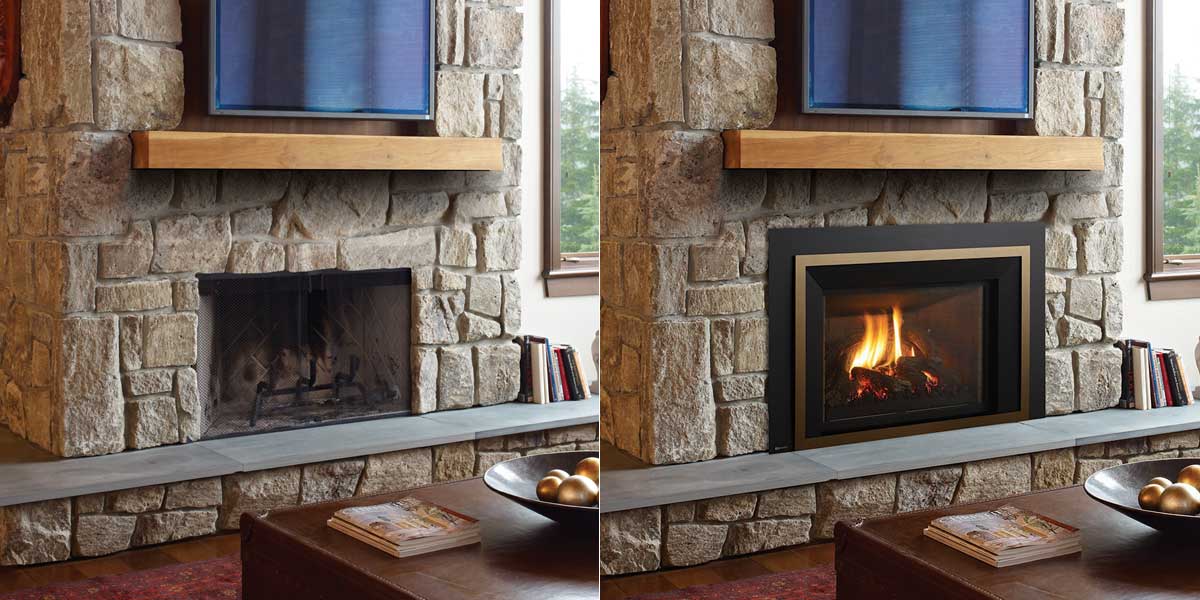A gas fireplace blower can significantly enhance the efficiency and effectiveness of your fireplace, providing both warmth and comfort to your living space. When considering the best gas fireplace blower for your needs, several factors come into play. Firstly, you’ll want to assess the size and layout of your room to determine the appropriate blower size and power output. A larger room may require a more robust blower to effectively distribute heat evenly throughout the space. Additionally, consider the design and aesthetics of the blower to ensure it complements your fireplace and overall décor.
Images about Best Gas Fireplace Blower
Best Gas Fireplace Blower

Pay attention to the noise level produced by the blower. While you want it to efficiently circulate warm air, you also don’t want it to disrupt the ambiance of your home with excessive noise. Look for gas fireplace blowers with quiet operation features, such as insulated enclosures or advanced fan designs, to minimize noise while maximizing performance.

Another crucial aspect to consider is the installation process and compatibility with your existing fireplace. Some gas fireplace blowers are designed for easy installation and can be retrofitted to various fireplace models, while others may require professional installation or specific compatibility requirements. Be sure to read product specifications carefully and consult with experts if needed to ensure seamless integration with your fireplace.
Explore additional features and functionalities that may enhance your experience, such as adjustable speed settings, remote controls, or programmable timers. These features can offer greater convenience and control over your fireplace’s operation, allowing you to customize the warmth and ambiance according to your preferences.
The best gas fireplace blower for you will depend on factors such as room size, noise level, installation requirements, and additional features. By carefully evaluating these aspects and choosing a high-quality blower from reputable brands, you can enjoy the cozy warmth and efficient heat distribution of your gas fireplace for years to come.
Fireplace Blower Fans: What You Need for Heat » Full Service Chimney™
BEST GAS FIREPLACE INSERT TOP 5 FOR EXISTING FIREPLACES
The Best Fireplace Insert – 8 Best Gas, Electric and Wood Burning
How to Buy a Gas Fireplace Insert
Best Gas Fireplace Inserts of 2024
Related Posts:
- Vent Free Gas Fireplace Logs
- Portable Gas Fireplace Heater
- Gas Fireplace Design
- Indoor Gas Fireplace Ideas
- Natural Gas Fireplace Reviews
- Gas Fireplace Energy Efficiency
- Contemporary Gas Fireplace Inserts
- Gas Fireplace Draft Cover
- Gas Fireplace Child Safety Screen
- Gas Fireplace Finishing Ideas
When it comes to heating your home efficiently and effectively, a gas fireplace with a blower is a great option to consider. Gas fireplaces offer the beauty and ambiance of a traditional wood-burning fireplace without the hassle of cleaning up ash and soot. Adding a blower to your gas fireplace can help distribute heat more evenly throughout your space, making it even more comfortable and cozy during the colder months.
Choosing the best gas fireplace blower for your home can seem like a daunting task with so many options available on the market. To help you make an informed decision, here are some key factors to consider:
1. Blower Size and Power: When selecting a gas fireplace blower, it’s essential to choose one that is appropriately sized for your fireplace. A blower that is too small will not effectively circulate air, while a blower that is too large may be noisy and inefficient. Look for a blower with adjustable speed settings to customize the airflow to your preferred comfort level.
2. Installation and Compatibility: Before purchasing a gas fireplace blower, make sure it is compatible with your existing fireplace model. Some blowers are designed to work with specific brands or models, so be sure to check compatibility before making a purchase. Additionally, consider the ease of installation – look for a blower that comes with clear instructions and all necessary mounting hardware.
3. Noise Level: A quiet blower is crucial for maintaining a peaceful atmosphere in your home. Look for models that are designed to operate quietly without disturbing your daily activities or relaxation time. Reading customer reviews can provide valuable insight into how noisy or quiet a particular blower model is in real-world use.
4. Energy Efficiency: Choosing an energy-efficient gas fireplace blower can help lower your heating costs and reduce your carbon footprint. Look for models that are Energy Star certified or have high efficiency ratings to ensure you are getting the most out of your investment.
Common Mistakes to Avoid:
– Not checking compatibility before purchasing a gas fireplace blower
– Overlooking noise level considerations
– Choosing an improperly sized blower for your fireplace
– Neglecting energy efficiency ratings when making a purchase
FAQs:
1. How do I know if a gas fireplace blower will fit my existing fireplace?
Before purchasing a gas fireplace blower, check the manufacturer’s specifications to ensure compatibility with your current fireplace model. You can also measure the dimensions of your fireplace opening to confirm that the blower will fit properly.
2. Can I install a gas fireplace blower myself?
While some homeowners may feel comfortable installing a gas fireplace blower themselves, it is always recommended to hire a professional for installation. Improper installation could lead to safety hazards or damage to your fireplace.
3. Are gas fireplace blowers noisy?
Not all gas fireplace blowers are noisy – it depends on the model and brand you choose. Look for units specifically designed for quiet operation and read customer reviews to gauge noise levels in real-world use.
4. How much energy does a gas fireplace blower consume?
Energy consumption varies depending on the size and power of the blower. Look for models with high efficiency ratings or Energy Star certification for more energy-conscious operation.
5. Can I use a gas fireplace blower with all types of gas fireplaces?
Gas fireplace blowers are typically designed for use with specific types of gas fireplaces, such as direct vent or vent-free models. Be sure to check compatibility before purchasing a blower for your specific type of gas fireplace.
How can I ensure that the energy consumption of a gas fireplace blower is efficient?
1. Choose a high-efficiency blower: Look for a gas fireplace blower that is designed to be energy-efficient. The blower should have a high AFUE (Annual Fuel Utilization Efficiency) rating, which indicates how effectively the blower converts fuel into heat.
2. Use a programmable thermostat: A programmable thermostat can help you control when the blower runs and at what speed, optimizing energy usage based on your heating needs.
3. Regular maintenance: Make sure to clean and maintain your gas fireplace blower regularly to ensure it is running efficiently. Dust and dirt can build up and make the blower work harder, using more energy.
4. Proper installation: Have your gas fireplace blower installed correctly by a professional to ensure it is working at its most efficient capacity.
5. Consider zone heating: If you have other heating sources in your home, such as radiators or space heaters, consider using zone heating to efficiently heat only the rooms you are using, reducing the workload on the gas fireplace blower.
By following these tips, you can ensure that the energy consumption of your gas fireplace blower is as efficient as possible.
What factors should I consider when selecting a gas fireplace blower for installation?
1. Compatibility with your gas fireplace: Ensure that the blower you choose is compatible with the make and model of your gas fireplace. Some blowers are designed specifically for certain brands or types of gas fireplaces.
2. Size and capacity: Consider the size of your fireplace and the heating capacity you require. Choose a blower that can effectively distribute heat throughout the room without being too powerful or too weak.
3. Noise level: Some blowers can be noisy, so consider how important quiet operation is to you. Look for blowers with noise-reducing features or quiet motors if noise is a concern for you.
4. Energy efficiency: Look for a blower that is energy efficient and will not significantly increase your gas bill. Some blowers have energy-saving features that can help reduce energy consumption.
5. Installation requirements: Consider the installation process for the blower and whether you have the necessary tools and skills to install it yourself. If not, you may need to hire a professional installer.
6. Warranty and customer support: Check the warranty coverage and availability of customer support for the blower you are considering. A good warranty can provide peace of mind in case of any issues with the blower.
7. Budget: Determine your budget for a gas fireplace blower and compare prices across different brands and models. Choose a blower that offers the best value for your money while meeting your heating needs.






